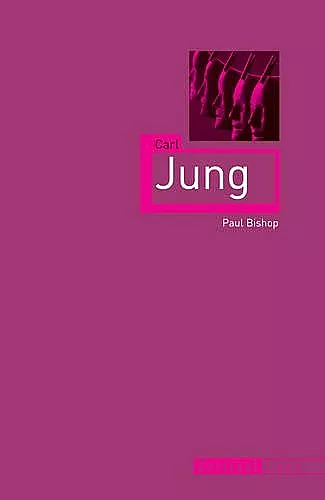Carl Jung
Format:Paperback
Publisher:Reaktion Books
Published:1st Feb '14
Should be back in stock very soon

Carl Gustav Jung (1875–1961), as well as being one of the pioneers of psychology, is one of the most controversial of thinkers: in spite of being largely responsible for the introduction of now-familiar psychological terms such as ‘extrovert’ and ‘introvert’, Jung has often been sidelined, remaining on the fringes of academic discourse. In this new account Paul Bishop reclaims Jung as a major European thinker whose true significance, even now, is not fully appreciated.
Taking into account the role of Jung’s recently published Red Book in the progression of his thought, Paul Bishop reassesses this divisive personality, reading Jung not only in terms of his biography, but also in light of his extensive reading and output. Jung once remarked that ‘the tragedies of Goethe’s Faust and Nietzsche’s Thus Spoke Zarathustra . . . mark the first glimmerings of a breakthrough of total experience in our Western hemisphere.’ In this critical biography Bishop takes up this suggestion and engages with Jung’s scholarship in order to offer one of the fullest appreciations yet of his distinctive approach to culture. He finds in Jung’s attempt to synthesize all the different parts of human life an enterprise that marks him out as one of the most important theorists of the twentieth century.
Carl Jung provides a clear, compelling examination of the life and thought of a highly influential figure. Concise and accessible, the book is suitable for general readers as well as having much to say to scholars and students of Jung. Bishop provides a striking, fresh interpretation of this complex thinker – and offers reasons why we should appreciate him too.
This excellent addition to the Critical Lives series is, says Paul Bishop, a biography of Jung in books In particular, Bishop locates Jung in a philosophical and literary context, demonstrating how deeply and profoundly Jung belongs to a broader stream of thought in German culture. For Jung, his library was his laboratory and so this approach is especially valuable in revealing the significance of analytical psychology as a cultural project . . . a wonderfully rich intellectual biography. * The Guardian *
Unlike many biographies of Jung, this is a balanced, unbiased portrayal. As part of the Critical Lives series, the volume looks at Jungs life from childhood to death, examining the culture, contemporary thought, and philosophy of the time period . . . well-researched . . . An excellent companion to Jungs The Red Book as well as Memories, Dreams, Reflections. Recommended. * Choice *
Bishop employs a critical style: sharp, but always clear and precise any reader from a scholar to someone approaching Jung for the first time can easily follow his argumentations . . . a good source of reference for a non-specialist reader, as well as an innovative reading for both historians and clinicians, showing how hard it can often be, to trace clear boundaries between humanities and science. * History of Psychiatry *
A complex life has been given a sensitive and complex treatment, with many small corners of thought to dwell upon. Bishop has given both the student of Jung and the casual reader much to enjoy. * Metapsychology *
In his book Carl Jung, Paul Bishop has woven a narrative of Jungs life that bypasses a linear history with a recursive and complex story that would make Jung proud . . . an even-handed description of the intertwining influences that contributed to the creation of the Jung that we have come to know . . . A masterful, albeit brief exposition. * PsycCritiques *
This makes the book a good source of reference for a non-specialist reader, as well as an innovative reading for both historians and clinicians, showing how hard it can often be to trace clear boundaries between humanities and science. * History of Psychiatry *
ISBN: 9781780232676
Dimensions: unknown
Weight: unknown
272 pages